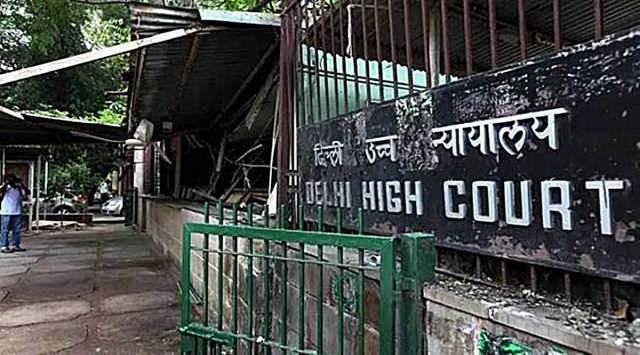HC nixes plea seeking direction to police to ask complainant about willingness to undergo narco, polygraph tests
The court said that if after investigation, police find that no case is made out against the accused, then it can file a “closure report”.
 The bench said the report only states that there has to be a “more effective mechanism and special legal provisions to adequately compensate an accused who is a victim of wrongful prosecution”. (File photo)
The bench said the report only states that there has to be a “more effective mechanism and special legal provisions to adequately compensate an accused who is a victim of wrongful prosecution”. (File photo) The Delhi High Court Monday dismissed a PIL seeking a direction to police to ask a complainant if they are willing to undergo tests like narco analysis, polygraph during investigation to “prove the allegation” and “only then record his/her statement in order to control fake cases”.
A division bench of Chief Justice Satish Chandra Sharma and Justice Subramonium Prasad in its July 3 order observed “at the outset” that the plea is “completely misplaced”, adding that Section 154 of the Code of Criminal Procedure (CrPC) provides how an FIR is to be recorded.
“Section 154 of the CrPC also lays down the procedure for recording an FIR in case the information is given by a woman against whom an offence under… Section 354 (assault with intent to outrage modesty of a woman), 354A (sexual harassment), 354B (assault to woman with intent to disrobe), 354C (voyeurism), 354D (stalking), 376 (rape)… 376D(gangrape)…of the Indian Penal Code is alleged to have been committed or attempted. After a complaint is reduced to writing in the format as prescribed under Section 154 of the CrPC, police start investigating the offence. The CrPC also lays down as to how the investigation has to be conducted and how the statements of witnesses, including the complainant, etc. are to be recorded,” the HC observed.
The bench further said it is well settled that “courts do not interfere with the investigation” which is “purely the domain of the investigating agency”, adding that it is for them to “uncover the truth”. The bench observed that if the prayer sought in the PIL is accepted, it can lead to “further humiliation of the complainant”, if the complainant is a woman for whom special protection/provisions have been made in the CrPC.
“The issue regarding the reliability of brain mapping test, polygraph test, narco analysis, lie detector tests, etc. is still under lot of debate and a writ of mandamus can certainly not be passed by the courts to authorities to conduct such tests in order to ascertain the veracity of the complainant,” the HC said.
The court also said that if after investigation, police find that no case is made out against the accused, then it can file a “closure report”. The bench further observed that the Constitution of India provides for special provisions for an accused wherein in case of false complaint, “there are other remedies which are available in law”.
“In view of the above, a complainant definitely cannot be forced to go through deception detection tests such as brain mapping test, polygraph test, narco analysis, lie detector tests, etc. to ascertain the veracity of the complaint before the investigation starts against the accused,” the bench said while dismissing the PIL.
The court also perused through the 277th report of the Law Commission of India handed over by the petitioner, Ashwini Kumar Upadhyay, and observed that the report shows that even the Law Commission has not recommended that a complainant must undergo scientific tests to ascertain the veracity of the complaint.
The bench said the report only states that there has to be a “more effective mechanism and special legal provisions to adequately compensate an accused who is a victim of wrongful prosecution” which “certainly does not mean” that a victim or a complainant must be forced to undergo scientific tests and “satisfy the police that the complaint is genuine before the investigation starts”.
The HC after perusing through the PIL noted that the petitioner had come across a case “wherein a complaint was filed against a journalist under the SC-ST Act though the complainant and the accused did not know each other”.
According to the petitioner, the journalist has been “harassed and humiliated” and had the complainant undergone a brain mapping test before the start of the investigation, the journalist would not have to undergo the humiliation or arrest. The court noted the petitioner’s contention that with the growth of technology, scientific tests like narco analysis, polygraph and brain mapping, etc., can be used to wipe out fake cases, which are being used in countries like the USA, China, etc., however not in our own country.
Upadhyay in its plea sought a direction to police to ask the accused “whether he/she is willing to undergo narco analysis, polygraph brain mapping test to prove his/her innocence” and record the statement. It had also sought a direction to the Law Commission of India to prepare a comprehensive report to control fake cases and to reduce police investigation and precious judicial time.







